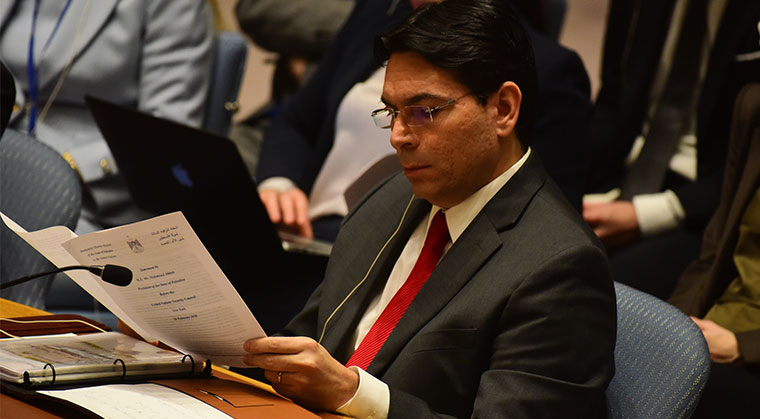Small Victories, Glacial Change


A
t the United Nations last Friday, as restless diplomats passed the time with polite chitchat, a drama was being played out behind the scenes.
After a week of Hamas rocket fire targeting Israeli communities along the Gaza border, world diplomats gathered to vote on two separate UN Security Council resolutions. One, sponsored by Kuwait, failed to mention Hamas and laid the onus for violence that had taken the lives of dozens of protesters squarely on Israel. The other, sponsored by the United States, condemned Hamas for orchestrating the protests and demanded that the terror group cease “all violent provocative actions” in Gaza.
Sensing an opportunity, US Ambassador to the UN Nikki Haley suggested amending the American resolution to the Kuwaiti one, a sort of tactical trick that would have forced council members to vote once against Hamas and once against Israel. Kuwait was vociferously opposed. As the day drew to a close, the Americans authored their own resolution, which meant two separate votes on two separate resolutions. The Kuwaiti resolution was vetoed by the Americans while the American resolution gained the support of no country.
Despite that outcome, Danny Danon, Israel’s ambassador to the UN, insisted the vote was a victory. True, not one nation had supported the American resolution, but four countries — the Netherlands, Britain, Poland, and Ethiopia — had abstained from the vote.
“The atmosphere has changed,” Danon said. “From being on the defensive, we’ve moved to the offensive. Now the conversation is about the missile fire. We managed to change the trend.”
Just two days before the Friday vote, there was another small victory for Israel: The Security Council convened to discuss Hamas attacks on Israel, at the initiative of the United States. That’s something that doesn’t happen every day — or even every year. “It was an important precedent,” Danon said.
Israel still has plenty of work ahead. Kuwait may now try to bring its anti-Israel resolution to the General Assembly, where there’s an automatic majority against the Jewish state. The fear is that European countries will support such a resolution, leading to another PR disaster for Israel. Still, Danon sees even glacial change as an improvement. “At the moment, we’ve got the upper hand,” he says. “I don’t know if the Kuwaitis would want to bring their resolution to vote in the coming days.” (Originally featured in Mishpacha, Issue 713)
Oops! We could not locate your form.













